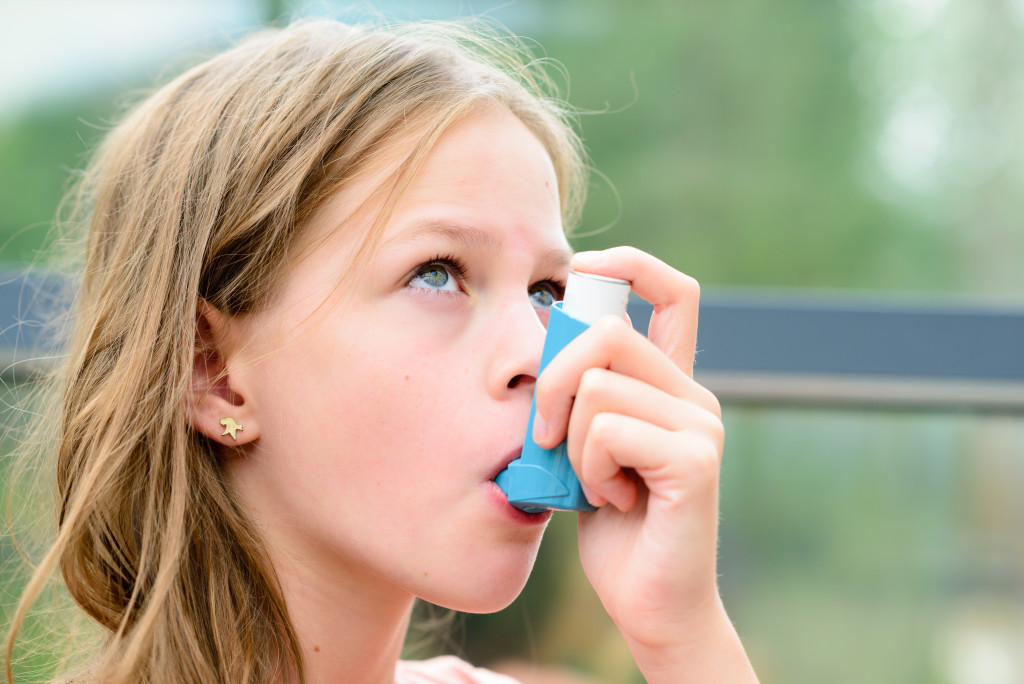For teenagers, participating in sports and other physical activities can be an important part of staying active and healthy. Unfortunately, several health issues can prevent teens from participating in these activities. It is important to be aware of the potential health issues that can interfere with a teen’s ability to participate in sports.
Asthma

One of the most common health issues that affect teens is asthma. Asthma is a chronic condition characterized by difficulty breathing due to inflammation and narrowing of the airways. Nearly 5.1 million kids under 18 have asthma, which is more prevalent among boys than girls. Asthma can limit a teen’s ability to participate in physical activities because it causes shortness of breath and fatigue.
What Parents Can Do
As parents, you are responsible for ensuring that your teen receives the best possible care for their asthma. Develop a plan with your teen’s doctor to manage the condition. Currently, there is no cure for asthma, but treatment can help control the symptoms. The main treatment is generally inhalers, devices that allow your teen to breathe in the medicine.
Sometimes, tablets and other treatments may also be needed for severe asthma. It is important to work closely with your teen’s doctor and ensure they understand when and how to take their medication. In addition, try to help your teen identify and avoid triggers that can worsen the asthma symptoms, such as smoke or pollen. Through proper treatment and management of their condition, teens with asthma can participate in sports like any other teen.
Oral Health Problems
As a teen, you may find that you’re becoming uncomfortable with the state of your teeth. This may be because of your changing hormones, poor hygiene, or oral health problems like wisdom teeth. These issues may cause you to feel too self-conscious or uncomfortable to participate in physical activities.
What Parents Can Do
If your teen is experiencing any oral health issues, it is important to seek medical help. Schedule an appointment with a dentist and have their teeth evaluated. The dentist will be able to identify the issue and provide guidance on how best to address it. Sometimes, it may be possible to fix the issue with braces or other treatments. Your teen may need surgery to correct the issue in more serious cases. Extraction of wisdom teeth may be necessary, especially when these teeth become impacted. Impacted teeth can cause pain and damage to other teeth, so it is important to have them addressed. Removing the problem will make will also make your kid feel more comfortable and confident participating in physical activities.
Muscular and Skeletal Injuries
Injuries are a common cause of sports-related disabilities among teens. Musculoskeletal injuries happen when there is a strain on the muscles, bones, or joints. Common injuries include sprains, strains, and fractures. These could be sustained during a game or practice or even from overuse of the muscles and joints. Injuries can be very painful and can limit your teen’s ability to move and participate in sports activities.
What Parents Can Do
If your teen experiences a musculoskeletal injury, it is important to seek medical care as soon as possible. During the recovery process, ensuring that your teen follows the doctor’s orders and takes any prescribed medication is important. It is also important to make sure your teen takes breaks from physical activities in between practices and games. Ensure that your teen warms up before engaging in any physical activity, as this can help reduce the risk of injuries. Additionally, remind your kid to wear appropriate protective gear when engaging in contact sports, such as helmets or padding.
Depression
Depression is another health issue that has become increasingly common among teenagers. Depression is a mental disorder characterized by sadness, hopelessness, and loss of interest or pleasure in activities once enjoyed. Depression can make it difficult for teens to find the motivation or energy to participate in sports or other physical activities.
What Parents Can Do
If you think your teen is suffering from depression, seek help as soon as possible. Speak with a physician or therapist and have them evaluated to determine if they are clinically depressed. Treatment may include counseling, psychotherapy, or medication, depending on the severity of the depression. Additionally, it is important to encourage your teen to be open to you and talk about their feelings.
Let them know you are there to support them and help them find activities that bring joy and motivation. Help your teen create a plan for self-care, such as taking walks or trying new sports. With the right treatment, teens can learn to manage their depression and become more active again.
Parents need to be aware of the various health issues their children may face to help them manage any problems. It’s best to consult a healthcare professional who can provide further insight into how to address the problem. By understanding these common health issues facing teens today, you will be better equipped to help keep your child happy and healthy while being active!

